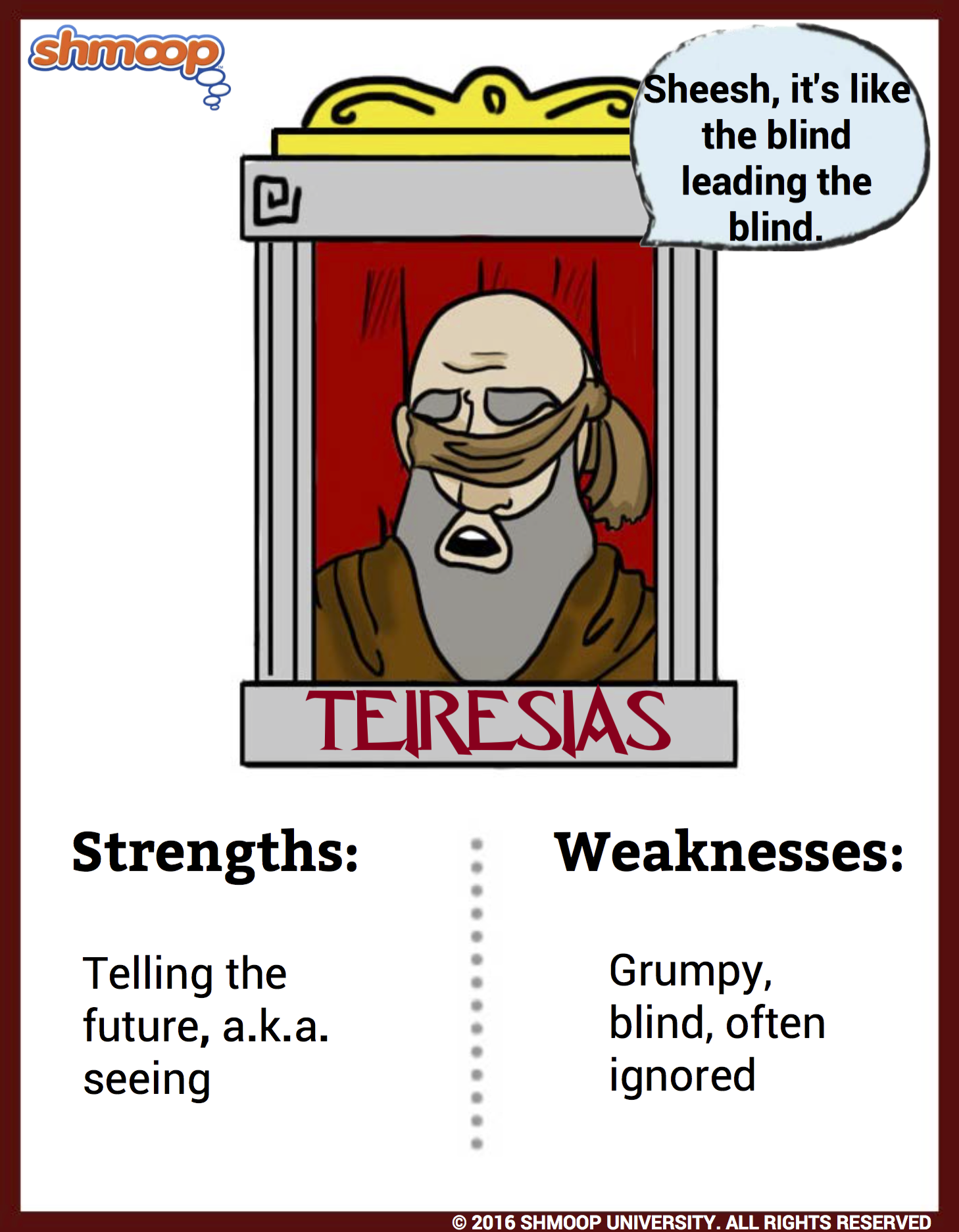Character Analysis

(Click the character infographic to download.)
The Blind Leading The Blind
Teiresias is kind of a cranky old fellow. We can see why. Even though he's blind, he can see better than any of those around him.
He's in tune with the mind of Apollo and receives visions of the future. Teiresias is also gifted in the magic art of augury, or telling the future from the behavior of birds. You might think these are pretty awesome skills, but it's probably difficult when everybody around you is doomed to shame, death, or mutilation. Not to mention, it must be annoying that whenever Teiresias does drop a little knowledge, people don't believe him. Both Jocasta and Oedipus are skeptical of his prophecies. Oedipus even goes so far as to accuse Teiresias of treason.
The blind seer only shows up for one scene in Oedipus the King, but it really packs a punch. Indeed it's the first real scene where we see any conflict, and as such, is necessary for keeping the audience interested in the play. In this scene, Oedipus gets angry at Teiresias because the prophet won't reveal the identity of Laius' murderer. It's clever of Sophocles to use this scene to show Oedipus' temper. Up until now the king has behaved rationally. He allows the Chorus to speak their mind and is doing his best to save his people. If we didn't see his anger here and later with Creon, we might not believe that Oedipus is capable of the multiple murders at the crossroads.
Probably the most interesting thing about this interchange is Teiresias' attitude towards the art of prophecy. Oedipus has good reason to be angry at him. King Oedipus has in front of him a man with the knowledge needed to save Thebes, but Teiresias won't reveal the necessary information. Instead he tells Oedipus that there's no point in revealing the truth, because everything that's going to happen is just going to happen anyway:
TEIRESIAS Well, it will come what will, though I be mute. (346)
Really? So: what is the point of prophets?
Teiresias' ironic attitude toward revealing prophecy makes him symbolic of the whole conundrum of the play. Is Oedipus responsible for his actions? Yes, Oedipus causes his own downfall, but if he was doomed by the gods from the beginning, is it really his fault? This debate didn't stop with the Greeks—it manifested itself once again in Christian thought, but was defined in terms of predestination vs. free will. Is our fate decided from birth or do we have a choice?
This unanswerable question will most likely bug us humans till the end of our days.
Can't get enough Teiresias? Then check out Sophocles' Antigone.
Teiresias' Timeline